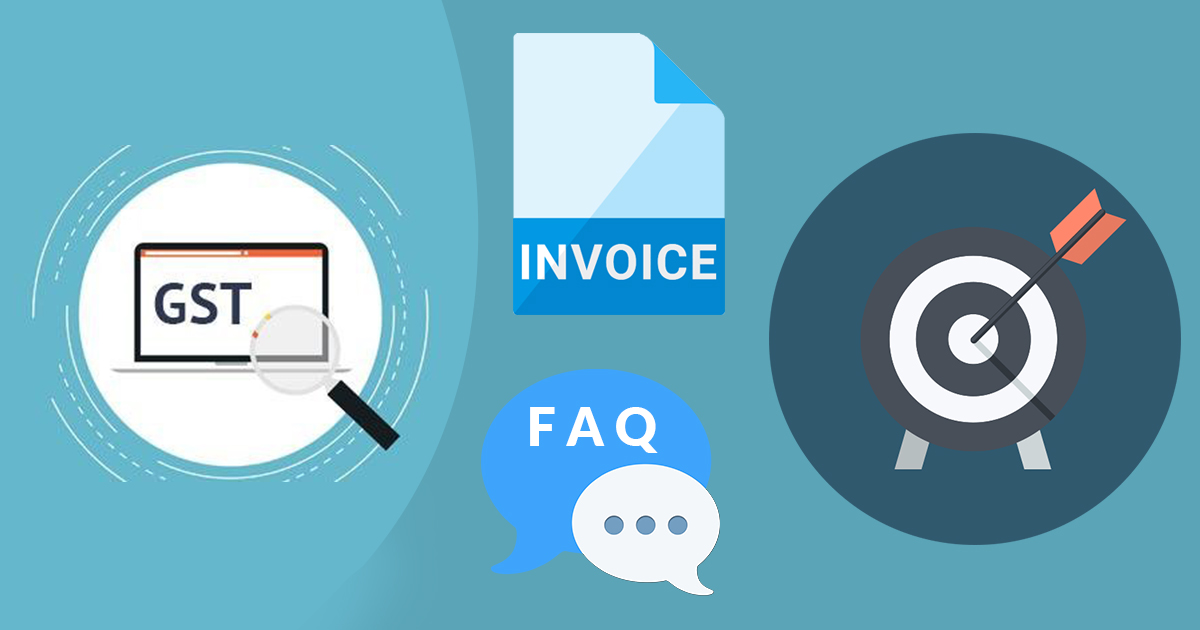
Under the GST Regime, every taxpayer is obliged to maintain different types of invoices. Below are the invoice details based on GST, which include how to make invoices and when to make invoices.
Several traders or business units maintain hand-operated invoices. The information mentioned in the everyone’s invoice is different. But under the new taxation structure information must be acknowledged according to the Government laws.
Each month, invoice information is necessary to submit to the Government. Bill of Supply, Debit/ Credit note, Tax Invoice, Receipt Voucher are several types of invoices. Business units or traders must have to maintain invoices (mentioned above) according to the nature of their transactions.
Read Also: Goods and Services Tax Sales Bill Format in India
Q. Which things are necessary to be present in the Tax invoice?
It is essential to present the following things in the tax invoice:-
- Name, address, and GSTIN of the supplier
- A consecutive serial number, containing alphabets or numerals or special characters
- date of its issue
- Name, address and GSTIN or UIN of the recipient; if registered
- Address of delivery
- HSN Code of goods or Service Accounting Code for services
- Description of goods or services or both
- Quantity of goods
- Value of supply of goods or services or both taking into account discount or abatement, if any
- Rate of GST
- Amount of GST on taxable goods or services
- Place of supply in case of interstate transaction
- Whether the reverse charge is applicable
- Signature or digital signature of the supplier or his authorised representative.
Q How, when and where to issue the invoice?
Each registered person under GST must have to issue an invoice while supplying goods, whereas in the case of services invoice is issued within 30 days from the date of supply of services.
If the amount of invoice is more than s Rs. 200 then it is necessary to issue the “Tax Invoice” and no need to issue tax invoice when invoice amount is below than Rs. 200. Traders must have to present an invoice of the aggregate amount of the supply of goods below Rs. 200 in one day. If the user is unregistered and the invoice amount exceeds Rs. 50,000 then it is necessary to disclose the name, address, and the state of the receiver on the invoice. If in a case taxpayer purchased goods from the unregistered person, then a Tax Invoice is also required to be issued to him. The taxpayer has to make three copies of the invoice; One copy for the purchaser, the second copy for the transporter and the third copy for self in a case of supplying goods. A person who is supplying services has to make two copies of the invoice; one copy for the service receiver and the second copy for self.
Q What is the bill of supply?
A supplier who is supplying tax-free goods, exempted goods under GST, must prepare a Bill of Supply. A supplier who has opted for the composition levy scheme has provided a bill of supply for those goods. A bill of supply is not eligible for claiming input tax credits.
Q When receipt voucher required to be issued?
An advance received from the customer is taxable under the GST, and a receipt voucher must be issued at the same time. However, all the details mentioned in the tax invoice also include receipt voucher.
Q Why and when are the debit note and credit note issued?
The taxpayer is not able to make any changes to the tax invoice after uploading it on the GSTN. If there are any changes required can be done via credit and debit notes. All the details mentioned in the tax invoice are also mentioned in debit or credit note.
Q What lesson should a taxpayer learn from this?
GST is one of the complex taxation structures in India. Each person has to change their working style and pattern after the introduction of GST. All invoices and GST filing return can be made through the online and computerised way. In the current scenario, it is essential to change the thinking of people or taxpayers in implementing GST.










Sir,
Our supplier issued the debit note for late payment with 18% GST, we will pay the amount within next 3 month but can we take credit?
As per rules under GST if the recipient doesn’t make the payment of supply within 180 days of invoice, then he needs to reverse the amount of ITC availed on such supply. So as you will make the payment within the due period, you are allowed to take credit.
Very useful information is being provided regarding GST issues.
Please keep it up.
How to levy tax on CGST & SGST for intra state supply of goods? As Example GST rate is 18% how to calculate CGST Rate & SGST Rate levy? Whether 9% CGST & 9% SGST IF GST IS 18% or if any other way pleas explain?
18% tax rate will be divided in half for both CGST and SGST. More here: http://blog.saginfotech.com/meaning-of-sgst-igst-cgst